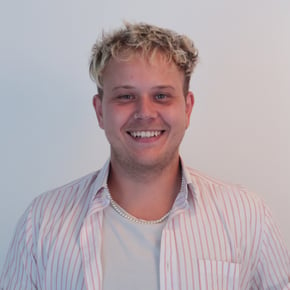dBs Institute’s Plymouth campus is home to some of the finest modular synthesis expertise and equipment in the country, driven by our Modular Research Group. Find out more about our love of Eurorack and how we integrate it into our curriculum here!
The international Eurorack community is driven by collaboration, shared knowledge and technical integration. Each module relies on another to work, which breeds an in-built sense of cohabitation within the industry. Eurorack companies aren’t fighting for space, but creating products that complement each other.
That sense of collaboration was the driving force behind the creation of the Modular Research Group (MRG) at dBs Institute. Phin Head and Matt Ward, part of our excellent faculty in Plymouth, wanted to instil the ethos of the Eurorack industry into the classroom and help bring our student’s ideas to life. During regular meetings, students, staff and local industry professionals come together to workshop projects and troubleshoot hurdles in the development process.
We spoke to Phin and Matt to find out more about their Eurorack expertise, how they integrate the MRG into the curriculum and what students involved in the MRG have gone on to achieve.
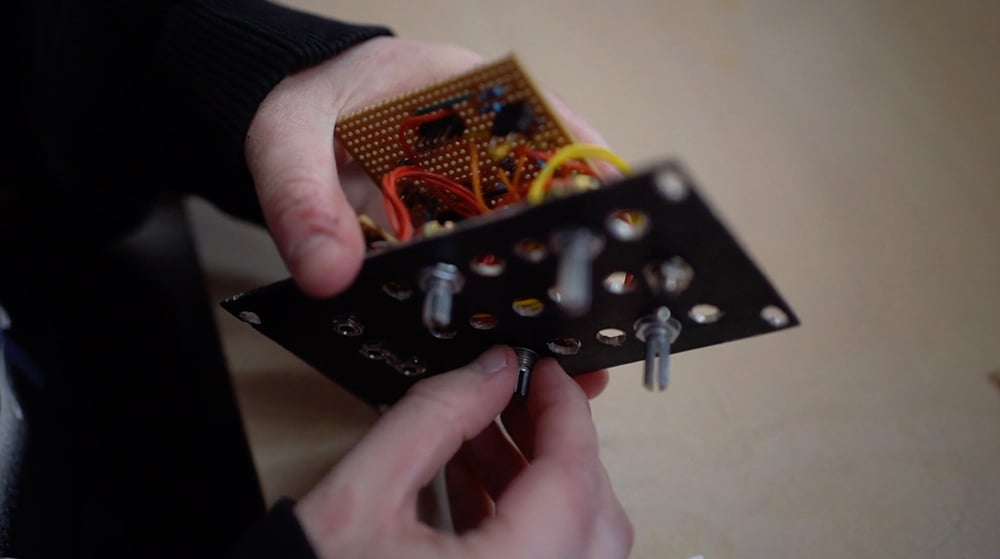
Hi guys! Introduce yourselves and what you do at dBs and in the industry.
Matt Ward: Hi, my name is Matt Ward. I'm the course leader for the BA (Hons) Electronic Music Production degree here at dBs Plymouth. One of the projects I've got going on outside of dBs is a company called Kinesotronic. Myself and Chris Pratt, we have built a gesture-driven CV and MIDI mappable device built by performers and for performers.
Phin Head: I'm Phin Head. I lecture on the undergraduate and postgraduate programmes here at Plymouth. Outside of dBs, I run a company called Stochastic Instruments Limited with a colleague of mine, Dr. Stuart McVeigh. The stuff that we do is performance-driven, generative sequencing. The main module that we have out is called Stochastic Inspiration Generator, and it's about the probabilities of each note in the scale firing and how you can create melodic and chordal content by setting the weightings of importance for different notes in a scale. The basic idea is about performative processes.
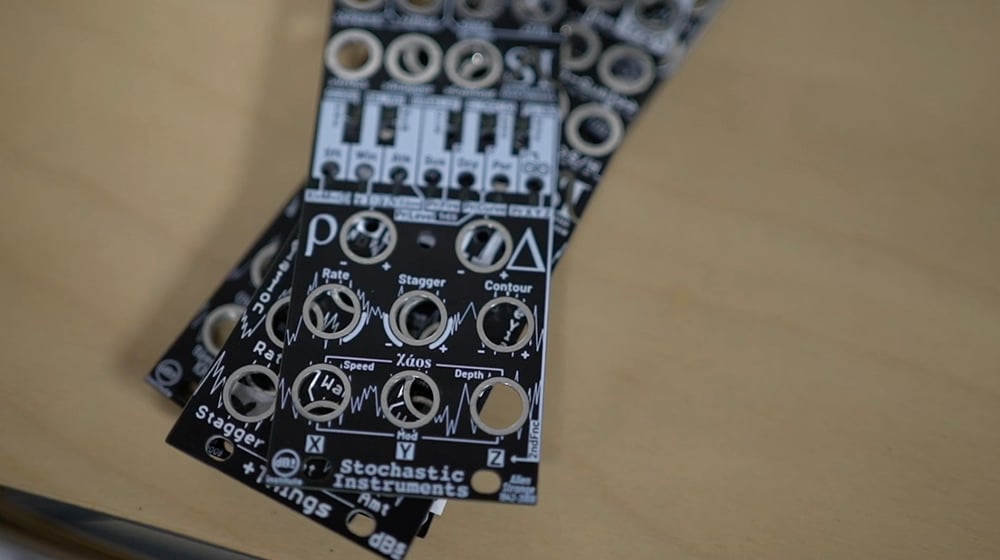
What is the Modular Research Group at dBs Plymouth?
Phin Head: The Modular Research Group (MRG) we run here at dBs Plymouth is a group of staff, students and local music professionals. It allows the development of modules, ideas, performances, advanced performance and composition techniques, all centred around Eurorack and synthesiser hardware. In a typical Modular Research Group meeting, a few people would bring something at a certain stage of development. It may be that they've got an idea and might vaguely know that it needs a bit of hardware or software, but they don't really know how to develop that. Or it might be something quite far down the development route, but there's a technical issue. Or it might be a really nice technical solution, but they haven't really found an application yet. It's very wide-ranging. The informal agreement is that anybody in the room can throw an idea in the hat and if it's good, we will run with that. There is something about that air of collaboration that, in microcosm, is the whole of the Eurorack community writ large. What is lovely about the MRG, but also Eurorack as a larger international community, is that everyone is there to help everybody else. They recognise that any module in a system, because it only does one thing, it can't exist without patching to something else. Unless there is interconnection and collaboration, none of it works anyway.
How is the MRG integrated into the teaching at dBs Plymouth?
Phin Head: Making the instruments that you are also composing with, it's very satisfying. There's something about controlling as much of the process as possible and I think that is very important to get across to students who are moving through to the higher levels of study; the width of responsibility that we can have as artists. Twenty years ago, it started to move across from, “Okay, you're either a composer or you're a producer,” you know, in the mixing sense and you did both. It's now very much that you can be a plugin designer as well, without having a background in programming because you can use technologies like Reactor and so forth to make a bespoke patch to do something. If you take that further, you're developing software, then you start developing hardware to do stuff that is really specifically about your musical interests. That's really powerful.
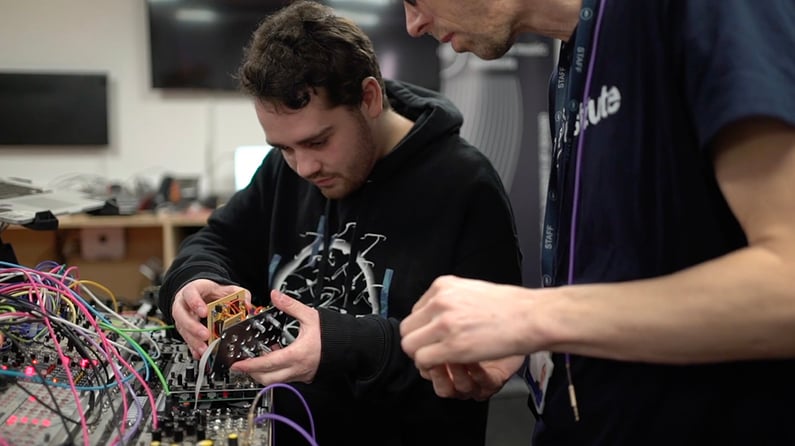
The MRG and how we integrate it into teaching is completely unique. You might say I'm bound to say that because we do it, but when we go to SuperBooth each year, which is the international conference, lecture series and concert series for what we do in Berlin every year, there are industry professionals there from tiny little startups to you know, Korg, Roland and Yamaha. We talk to performers and companies there and every single one of them says, “There is absolutely nothing like this, this is completely unique.” Similarly from the side of universities, students will get involved with research at universities, but it's very rare that the research turns into industry products. I don't know of anybody else that does this and we're really proud of it.
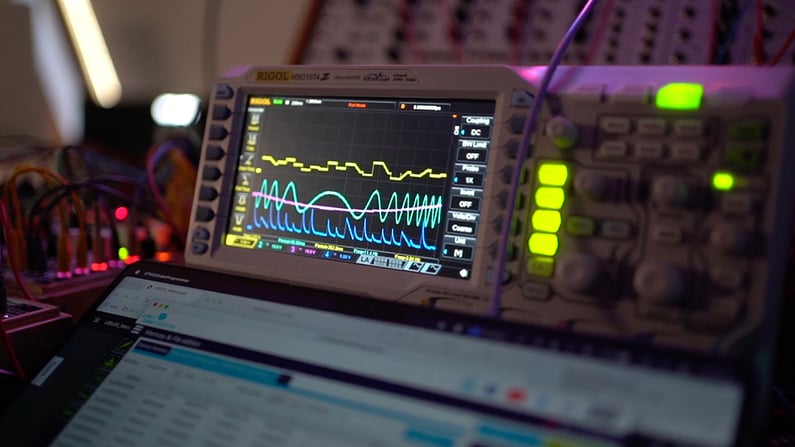
What have some of the students who have worked with the MRG gone on to do?
Matt Ward: Some of the success stories of dBs students are Nat Harris, who created a fantastic guitar pedal company called Buzztone Audio. They specialise in distortion and have a wonderful aesthetic and some really, really lovely pedals. He studied our MA Innovation in Sound course. We also have Harvey Jones, who is a current student in his third year and developing a prototype compressor. Harvey came on our SuperBooth trip and did a workshop building a compressor in Berlin, and has decided to pursue that further and build his own Eurorack modules and company.
Phin Head: Some of the other successes, Josh Ball is developing really innovative voice-based control systems for software. He completed our Master's programme a few years ago. Graduate Dan Legg created his own Eurorack company Fully Wired Electronics. He creates his own modules, but he also actually builds all of our stuff for us so he has a fabrication side to what he does. He worked from level two through a BTech, undergraduate degree and then the Master’s so he had this sort of full six-year arch with dBs. So that was an incredible success story.
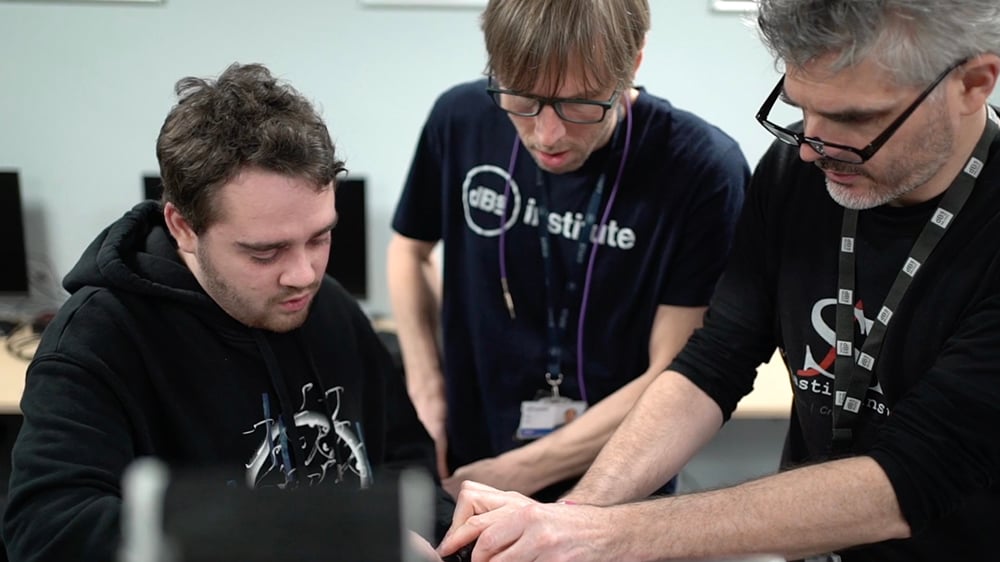
What do you see as the future of modular in the modern music industry?
Phin Head: In comparison to 10 years ago, it's now very, very common indeed to see a pair of 1210s or a pair of Traktors or something and then a modular system by the side for a DJ set - or an entirely Eurorack-based DJ set. That's the future of where this sort of live electronic performance is going. Undoubtedly it's the present and very much the future of it. So being able to nurture that with the students who are coming through and creating these incredible new companies, that's enormously exciting.
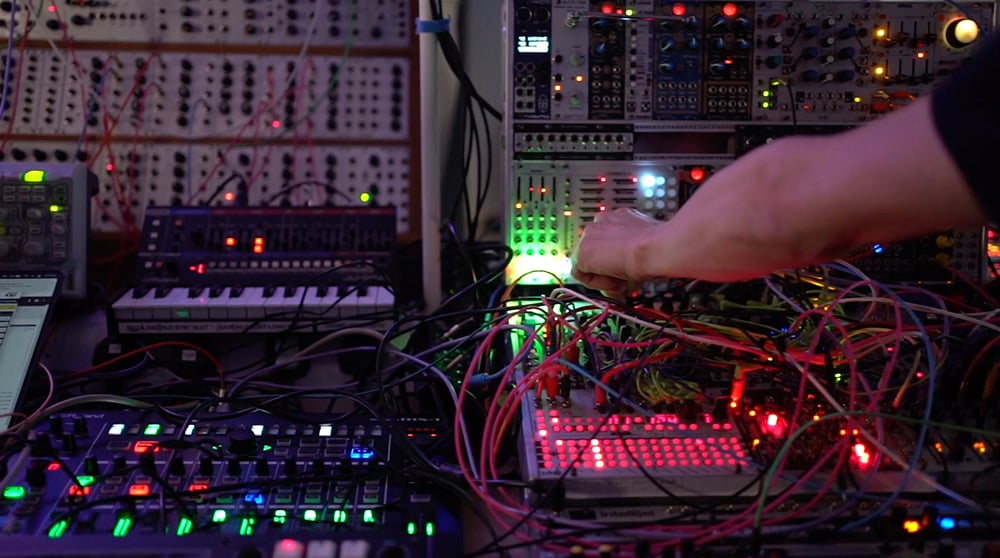
Learn more about our Access to HE Diplomas, Undergraduate degrees or another one of our Music Production Courses or visit us at a dBs Plymouth Open Day!
